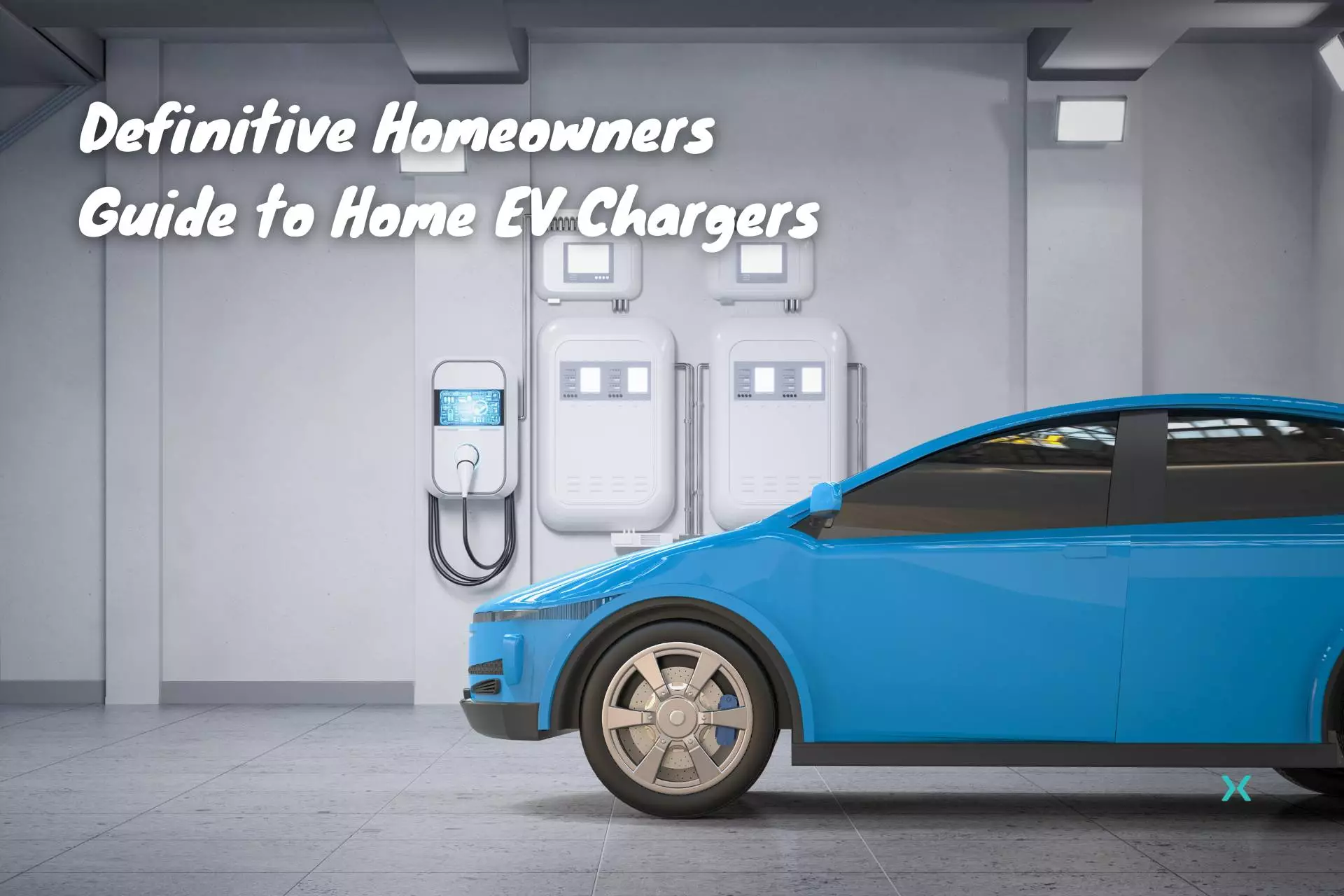🚗 Electric Car Charging: Easier Than You Think
Electric vehicles (EVs) have emerged as a popular and environmentally friendly choice for eco-conscious car consumers looking to reduce fuel costs.
And with the advancements in technology and the widespread availability of charging infrastructure, it has become increasingly convenient and economical to have an EV charging station in your home.
Many people are installing Level 2 charging stations, which offer faster charging speeds and enhanced convenience for your daily EV charging.
There are also DC fast-charging stations, which provide remarkable capabilities for rapid charging, ensuring that you can stay on the move with minimal downtime.
An essential consideration in the realm of electric vehicle charging is the interconnectivity between various EV types and electric vehicle supply equipment.
In this article, we will review how Tesla chargers can be effortlessly utilized to charge different EV models, and vice versa.
This remarkable versatility greatly expands your charging options, enabling you to find suitable charging solutions wherever your journey takes you.
Table of Contents
🚗 Factors to Consider For Home EV Chargers
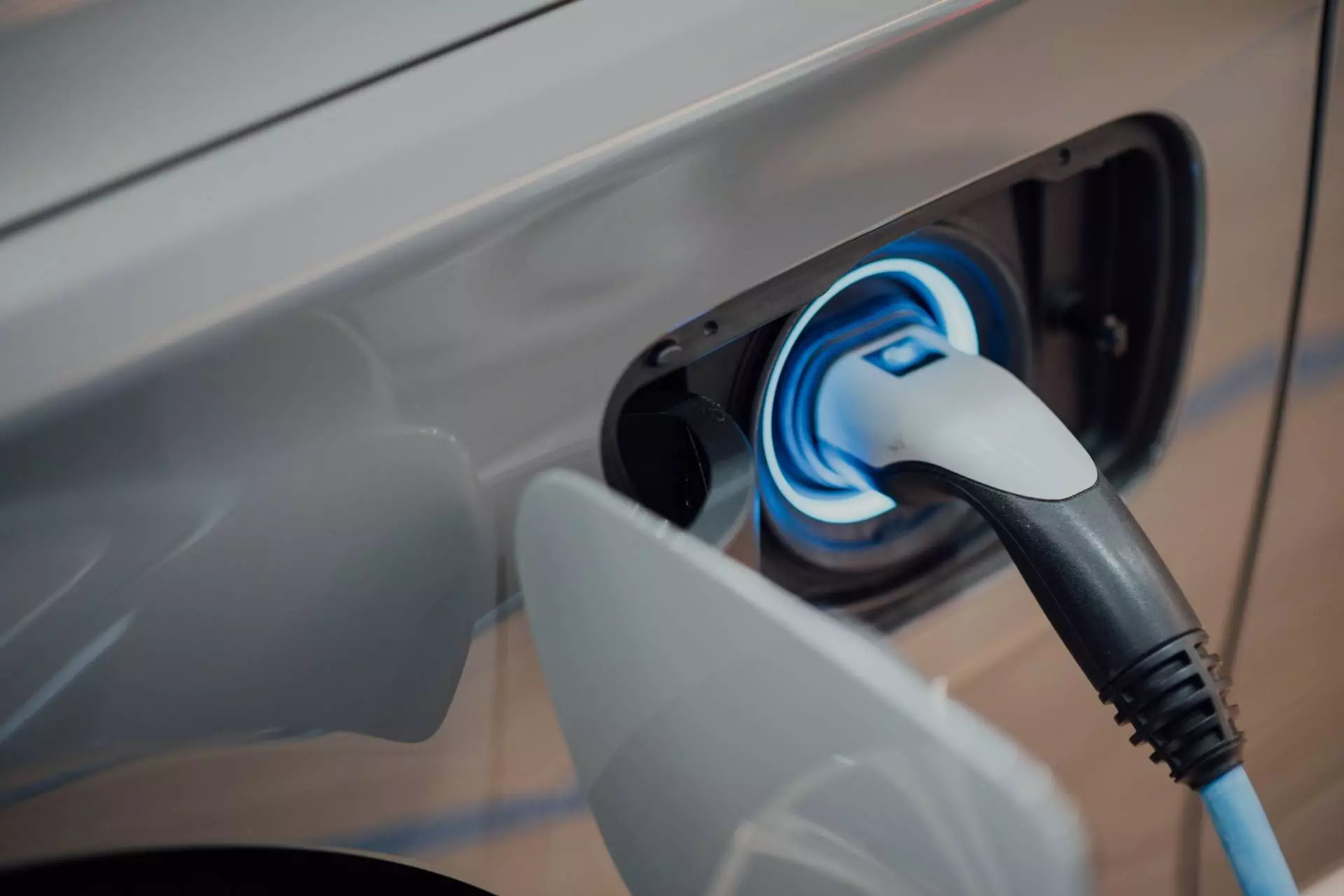
When it comes to purchasing a home EV charger, several critical factors need to be taken into account.
These include selecting the appropriate amperage that aligns with your specific charging needs and considering the advantages of smart electric vehicle chargers.
A smart charging unit offers extra features, such as remote monitoring, scheduling capabilities, and energy optimization.
If you need a charging unit for outdoor use, you may need to consider extreme temperatures.
By carefully evaluating these considerations, you can ensure optimal charging performance and maximize the benefits of your home charging equipment.
By embracing the convenience of an EV charging station, all your journeys will be worry-free, knowing that your EV is always charged and ready for the road ahead.
Embrace the power of EV charging, reduce your fuel costs, and do your part for the environment, all while enjoying the many benefits this technology has to offer.
🚗 Charging Station Options for Home

Home electric vehicle chargers have revolutionized the way EVs are charged, providing a convenient and efficient method within the comfort of your own space for only a few hundred dollars.
When selecting the ideal charging station for your home, there are numerous options, ensuring a tailored solution.
If possible, you should try to test EV chargers before your purchase.
By understanding these options, you can make an informed decision that aligns perfectly with your requirements.
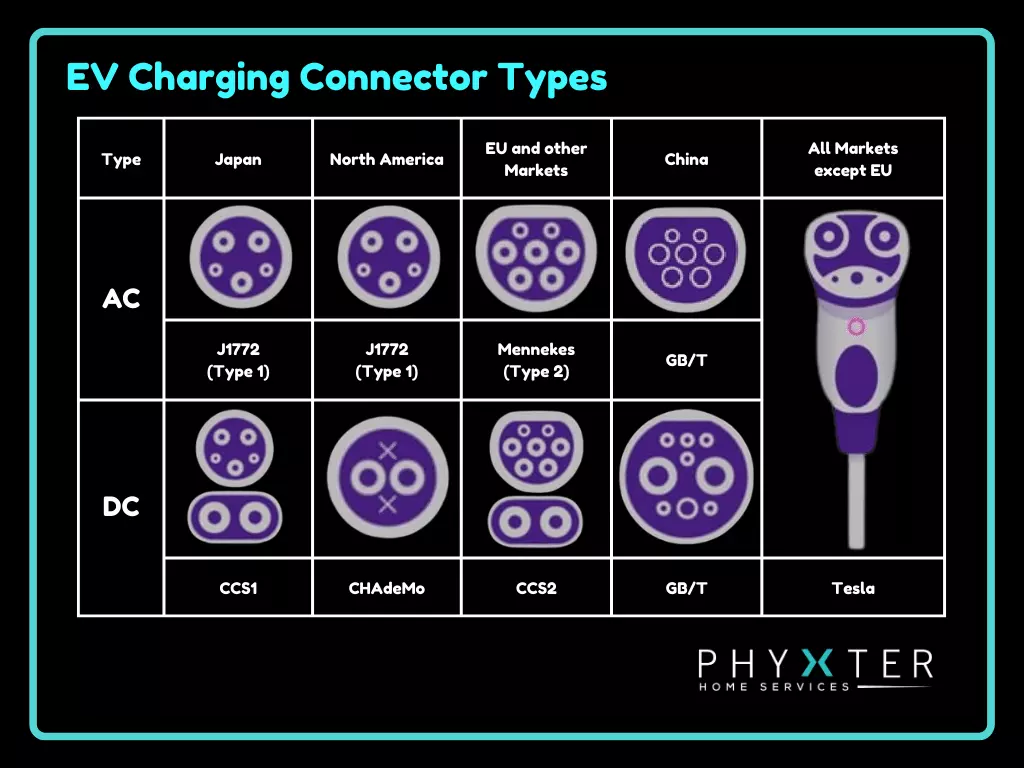
⚡ Level 2 Charging Station
A Level 2 charging station surpasses the standard Level 1 EV charging station in terms of charging capabilities.
These stations use higher charging power, reducing the time needed to reach a full charge.
Whether you need to recharge your EV overnight or during extended parking periods, Level 2 charging stations prove to be reliable options.
For a smooth and safe installation, contact a qualified electrician.
⚡ DC Fast-Charging Stations
DC fast charging stations, widely known as Level 3 chargers, provide extraordinary power delivery directly to your EV’s battery.
DC fast chargers excel in rapid charging, catering to long-distance trips or situations demanding a quick top-up.
Although DC fast chargers are less prevalent in residential settings due to their specific electrical requirements and higher costs, they are readily available in public stations, facilitating on-the-go charging needs.
The time needed to reach a full charge depends both on your EV charging station and battery capacity.
⚡ Fast Charger Connectors
Fast charger connectors like CHAdeMO and CCS (Combined Charging System) utilize standardized plug types purposefully designed for seamless compatibility with DC fast chargers.
These connectors ensure efficient and reliable charging for compatible EVs, enabling hassle-free charging experiences.
Familiarizing yourself with the connector types supported by your vehicle is vital when considering DC fast chargers station or utilizing public fast-charging infrastructure.
⚡ Tesla Chargers
Tesla vehicles use a proprietary charging connector known as the Tesla Connector or Tesla Wall Connector.
Specifically engineered for Tesla models, these chargers offer rapid and convenient charging options exclusively tailored to Tesla owners.
To extend compatibility beyond Tesla’s charging standards, Tesla provides adapters that bridge the gap, broadening the spectrum of charging options available for Tesla owners, both at home and on the road.
⚡ Charging Adapters
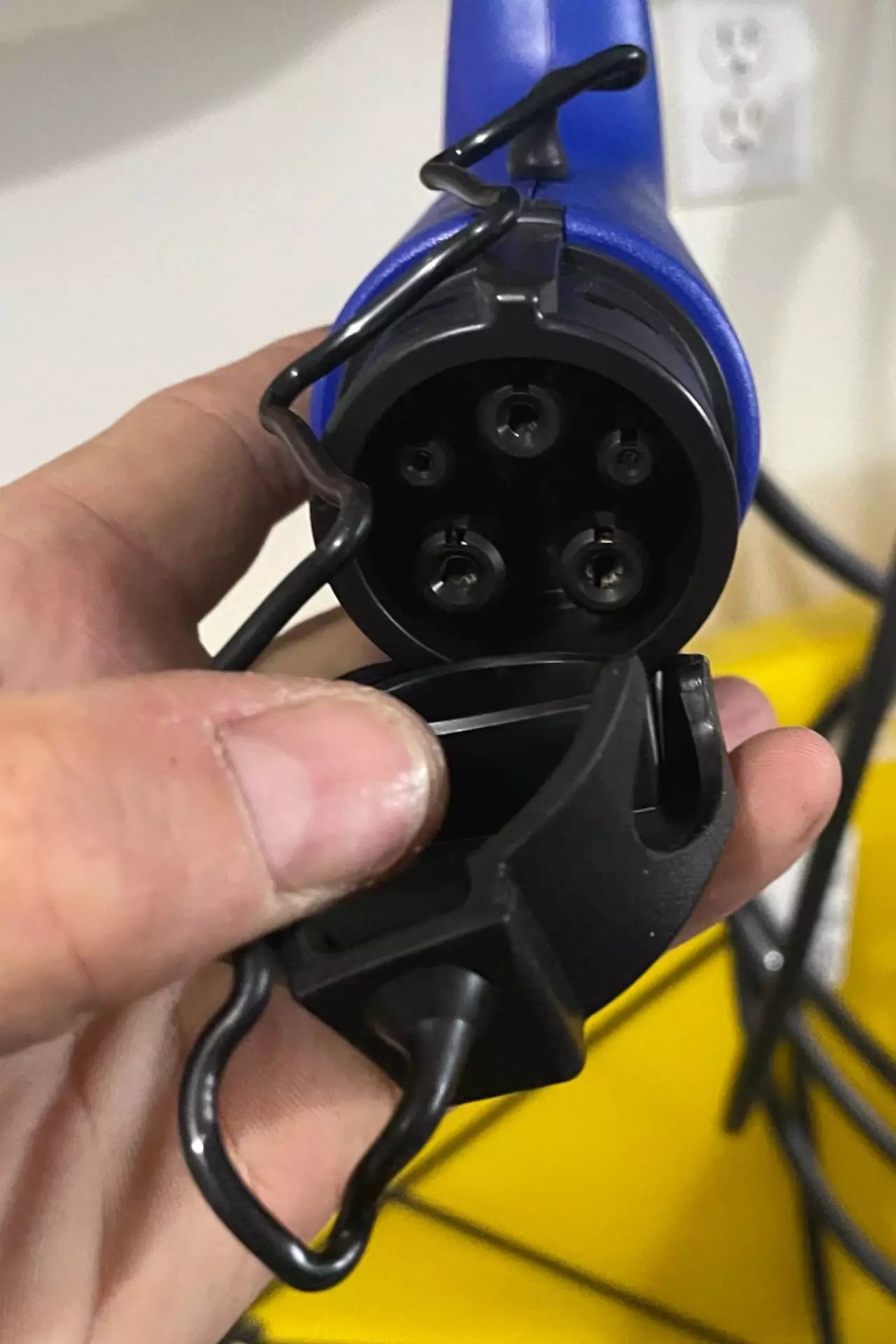
Charging adapters play a pivotal role in ensuring compatibility between different charging connectors and your EV.
These accessories offer flexibility and convenience, enabling the use of charging stations with diverse plug types and standards.
Equipping yourself with the appropriate adapters unlocks access to an extensive array of options, empowering you to utilize public charging networks equipped with varying connector types.
⚡ Can I Use the Charger That Came with the Car?
Most EVs come with a Level 1 portable unit, which plugs into standard household outlets.
Naturally, you can use it to charge your car, but it may take a full night to charge your car.
Level 1 chargers have much slower charging speeds compared to a Level 2 EV charger.
For faster and more efficient charging experiences at home, upgrading to a Level 2 EV charger is recommended.
A level 1 charger may suffice for many. However, it’s worth exploring other home charging options.
These include Level 2 stations, DC fast-charging, and Tesla chargers.
Also, consider the onboard charger that comes with your vehicle.
Consider the charging speed and compatibility with your vehicle.
This way, you can find the best match for your EV charging needs.
🚗 Choosing and Installing a Home EV Charger
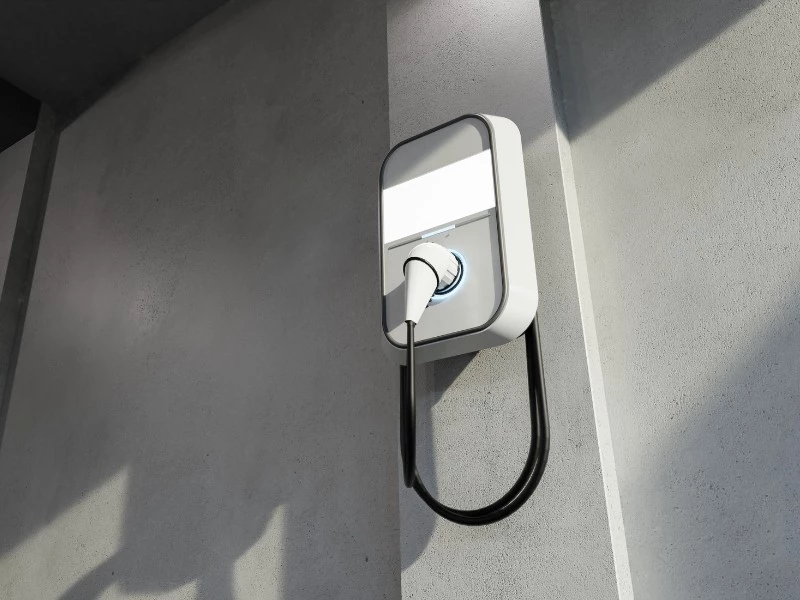
Selecting and installing a home EV charger doesn’t have to be daunting.
But the process does require an evaluation of various factors, including installation costs, charging speed requirements, compatibility, and the integration of smart connectivity features.
These are key aspects you need to consider when it comes to choosing and installing a home EV charger.
⚡ Costs for Home EV Charger Installation
There are several costs associated with installing an EV charger at home.
The cost of the EV charger unit itself can range from a few hundred dollars to several thousand dollars, depending on the brand, features, and charging capacity.
Hiring a qualified electrician to install the EV charger is recommended for safety and proper installation.
Depending on your home’s electrical system and the charger’s power requirements, you may need to upgrade your main electrical panel, which can be pricey.
Whether you hire a qualified electrician or perform the installation yourself, a permit will be required; of course, the cost for a permit varies by area.
⚡ Choosing Amps
When it comes to selecting a home EV charger, one of the most important considerations is amperage (A).
Different chargers present a wide range of amperage options, generally between 20 and 60 amps.
The amperage is the most important factor in determining the charging speed and has a direct impact on the electrical requirements for the installation process.
Therefore, it is essential to consider your EV’s charging capability and evaluate your home’s electrical capacity to ensure the best amperage selection.
⚡ Cord Length
Another factor to consider when choosing a home EV charger is the length of the charging cable or cord that accompanies the charger itself.
Depending on the location of your parking space and its proximity to the wall connector, you may require a longer cord.
Measure accurately from your parking place to the wall mount of your charging port, and select a convenient location for the wall connector.
⚡ Smart Connectivity
Opting for smart charging features in your home EV charger will provide you with a greater degree of control over the entire charging process.
These features may include smartphone applications, advanced Wi-Fi connectivity, sophisticated scheduling capabilities, and even remote monitoring functionalities.
This will allow you to monitor the charging status, schedule charging sessions during off-peak hours to take advantage of lower electricity rates, and receive real-time notifications directly on your mobile device.
By evaluating installation costs, selecting the appropriate amperage, taking into account cord length, and exploring the array of smart connectivity features available, you will be well-equipped to make an educated and informed decision when it comes to selecting a home EV charger.
Additionally, it is strongly recommended to seek the guidance and assistance of qualified professionals and experienced electricians throughout the installation process to ensure utmost safety, compliance with local electrical codes, and adherence to prevailing industry standards.
🚗 Smart EV Chargers: Is It Worth It?
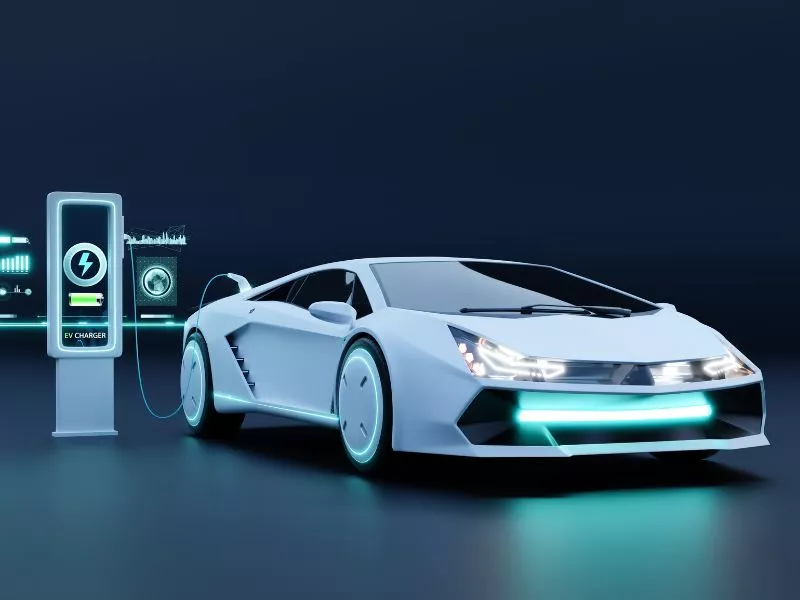
As technology continues to advance, smart electric vehicle chargers have emerged as an innovative solution in the realm of EV charging.
These chargers offer advanced features and connectivity options that enhance convenience, control, and energy management.
By understanding the concept of smart chargers and researching their benefits, you can determine if investing in a smart charger is worth it for your charging needs.
⚡ Do I Need a Smart EV Charger?
Before considering a smart EV charger, it’s essential to assess your specific charging requirements and preferences.
Smart chargers come with additional features and capabilities that may not be necessary for everyone.
However, if you value convenience, energy optimization, and the ability to monitor and control your charging sessions remotely, a smart charger might be a worthwhile investment.
⚡ Smart Connectivity Benefits
Smart EV charging stations offer a range of connectivity options and other features that elevate the charging experience.
These other features include:
📱 Remote Monitoring and Control
With smart connectivity, you can remotely monitor and control your charging sessions using a dedicated smartphone app or web portal.
This allows you to check the charging status, start or stop a charging session, and receive real-time notifications.
Monitoring the status of your charging station can provide confidence and peace of mind.
📱 Scheduling and Time-of-Use Optimization
Smart chargers enable you to set charging times, taking advantage of off-peak electricity rates or specific time slots that align with your energy provider’s time-of-use pricing.
Programming your charging station to charge at ideal items helps optimize charging costs and reduces the strain on the electrical grid during peak hours.
📱 Integration with Smart Home Systems
Some smart chargers can integrate with existing smart wi fi home systems, allowing for seamless integration and centralized control.
This integration enables synchronization with other devices, such as solar panels or home energy management systems, to optimize energy usage and minimize costs.
📱 Energy Monitoring and Reporting
Smart chargers often provide energy monitoring and reporting capabilities via wi-fi, allowing you to track your energy consumption, evaluate energy usage patterns, and identify opportunities for efficiency improvements.
These insights help you make informed decisions regarding energy management and potential cost savings.
While smart chargers offer numerous benefits, it’s important to consider the additional cost associated with these advanced features.
Assessing the value these features bring to your charging routine and long-term energy management goals will help determine if the investment in a smart charger is worth it for you.
Investing in a smart EV charger can provide added convenience, energy optimization, and control over your charging sessions.
However, it’s crucial to evaluate your specific needs and preferences before deciding if a smart charger aligns with your charging requirements and budget.
By understanding the benefits and considering your priorities, you can make an informed decision.
🚗 Compatibility Between Electric Vehicle Types
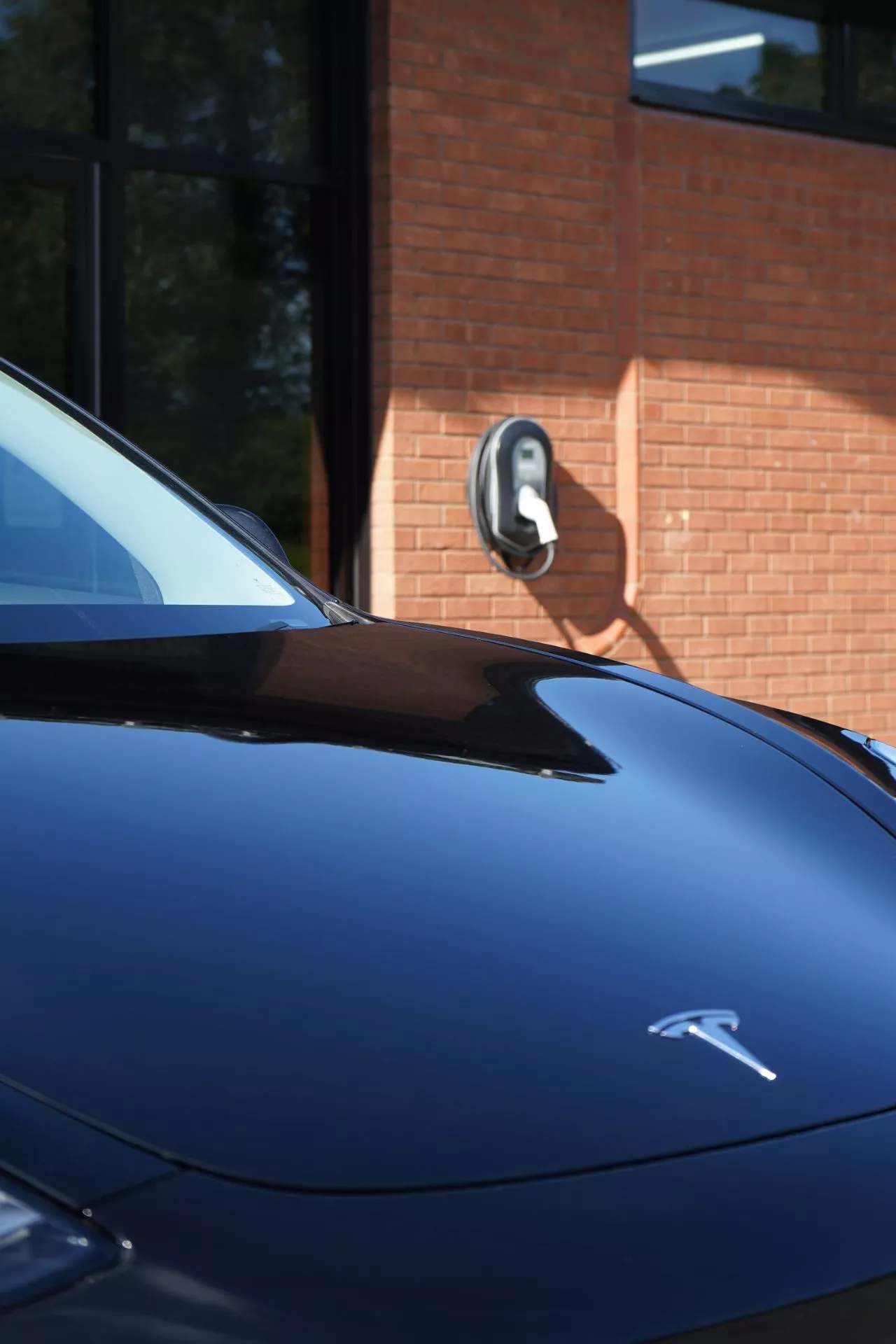
As the EV market expands, ensuring compatibility between different EV models and charging infrastructure becomes increasingly important.
It’s important to research the compatibility between electric vehicle types, specifically focusing on how to charge most EVs with a Tesla charger (and vice versa).
Understanding compatibility options helps EV owners access a broader range of charging stations and facilitates a seamless charging experience.
⚡ How to Charge Most Electric Vehicles with a Tesla Charger (and Vice Versa)
Tesla has developed its proprietary charging connector known as the Tesla Connector or Tesla Wall Connector.
While primarily designed for Tesla vehicles, it is possible to charge most EVs using a Tesla charger with the use of specific adapters, as well as charging a Tesla vehicle with non-Tesla chargers.
These adapters allow most EV drivers to access the extensive Tesla Supercharger network or use Tesla Wall Connectors for convenient charging.
Tesla to Non-Tesla Charging
To charge non-Tesla EVs with a Tesla charger, you need a CHAdeMO adapter or a CCS adapter, depending on the charging standard supported by your vehicle.
The adapter serves as a bridge, allowing your EV to connect to the Tesla charging infrastructure. Tesla chargers are appropriate for outdoor use.
By utilizing the appropriate adapter, non-Tesla EV drivers can access Tesla charging stations, expanding their charging options.
Non-Tesla to Tesla Charging
Charging a Tesla vehicle with a non-Tesla charger requires a Tesla-to-J1772 adapter.
This adapter allows Tesla owners to connect their vehicles to public charging stations or home chargers that utilize the J1772 standard connector.
By using the adapter, Tesla owners can take advantage of a broader network of non-Tesla chargers.
It’s important to note that while adapters provide compatibility, charging speeds may vary depending on the EV model, battery capacity, and the charging equipment.
It is recommended to consult the vehicle manufacturer’s guidelines and the charging station’s specifications for optimal charging performance and safety.
By understanding the compatibility options and utilizing the appropriate adapters, EV drivers can broaden their charging options and access a larger network of public charging stations.
However, it’s crucial to ensure that the adapters used are of high quality, properly maintained, and compliant with safety standards to ensure reliable and safe charging.
🚗 Buying Options for Home Electric Vehicle Chargers
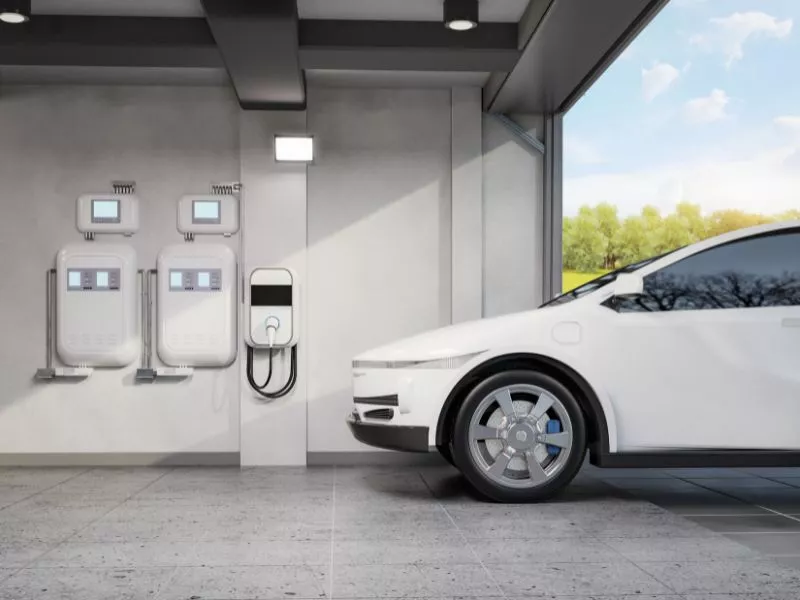
When it comes to purchasing a home EV charging station, there are various buying options available to cater to different needs, preferences, and budgets.
When exploring the different avenues for buying home EV chargers, collect the information you need to make an informed decision.
⚡ Manufacturer Websites and Official Retailers
One of the primary buying options is to purchase an EV charger directly from the manufacturer’s website or through official retailers.
Many reputable EV charger manufacturers offer a wide range of models, providing detailed specifications, compatibility information, and customer support.
Buying from the manufacturer or official retailers ensures the authenticity of the product and access to warranty and support services.
⚡ Online Marketplaces
Online marketplaces such as Amazon, eBay, and dedicated EV equipment marketplaces offer a convenient platform for purchasing home chargers.
These platforms provide a wide selection of chargers from various brands, allowing you to compare prices, read customer reviews, and make informed decisions.
However, it’s important to research and purchase from reputable sellers to ensure product quality and reliability.
⚡ Local Electricians and Electrical Supply Stores
Engaging with local electricians and visiting electrical supply stores can be a viable option for purchasing home EV chargers.
Electricians often have access to reliable charging equipment and can provide expert advice on charger selection, installation requirements, and local regulations.
Electrical supply stores may also carry a range of EV charging equipment, allowing you to assess the chargers and obtain guidance from knowledgeable staff physically.
⚡ Utility Programs and Incentives
Some utility companies offer special programs and incentives to encourage the adoption of EVs and home chargers.
These programs may include discounted or subsidized chargers, federal tax credits, installation assistance, or time-of-use rate plans.
Checking with your local utility provider can provide insight into any available programs that can help offset the cost of purchasing a home EV charger.
⚡ Professional Installation Services
In addition to purchasing the charger itself, professional installation services may be required to ensure safe and compliant installation of the charging equipment.
Many EV charger manufacturers offer installation services or can recommend qualified electricians in your area.
Engaging professional installers ensures that the charger is properly connected, electrical requirements are met, and safety standards are upheld.
When installing a home charger, a major piece of the installation costs will be a 240-volt dedicated circuit.
Although you will have some installation options, adding a 240-volt dedicated circuit to your electrical panel should be performed by a qualified electrician.
When selecting the best EV charger for your home, consider factors such as charging speed, compatibility with your EV, warranty coverage (a three-year warranty is common), customer reviews, and after-sales support.
Researching various buying options, comparing prices, and assessing product quality will help you make an informed decision that aligns with your specific needs and budget.
🚗 Determining the Electric Rate and Meter System That Works for You
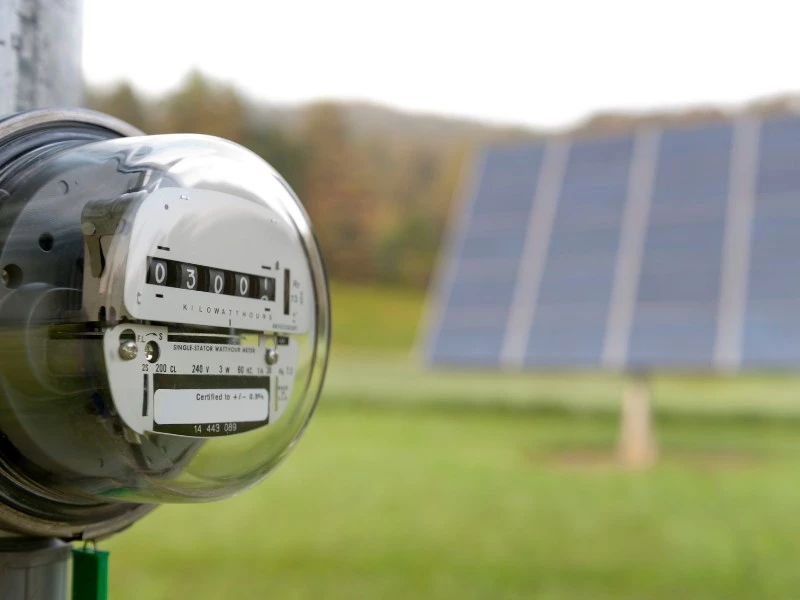
When installing a home electric vehicle charger, it’s essential to consider the electric rate and meter system that best suits your charging needs.
This section will explore important factors to consider when determining the electric rate and meter system for your home charging setup.
⚡ Time-of-Use (TOU) Rate Plans
Time-of-Use (TOU) rate plans offered by utility companies provide different electricity rates based on the time of day.
With TOU plans, electricity costs can vary depending on peak, off-peak, and shoulder hours.
This allows you to take advantage of lower rates during off-peak hours when charging your car, potentially reducing your charging costs.
Evaluating the TOU rate plans offered by your utility provider and understanding their pricing structure will help you optimize charging expenses.
⚡ Demand Charges
Some utility companies apply demand charges to customers who consume a high amount of electricity within a specific time period.
Installing a high-power EV charger with a high charging capacity may result in demand charges.
It’s important to consider the potential impact of demand charges on your overall electricity costs and discuss this with your utility provider to determine the most cost-effective charging solution.
⚡ Separate Metering
Another option to consider is installing a separate meter dedicated solely to your EV charger.
This allows for accurate tracking of electricity usage specifically for your EV charging, providing clear visibility of charging costs.
Separate EV metering may be advantageous for people who want to closely monitor and manage their charging expenses separately from their household energy consumption.
⚡ Load Management and Energy Management Systems
Load management and energy management systems can help optimize the charging process and reduce the strain on your home’s electrical system.
These systems enable you to schedule charging sessions during off-peak hours, coordinate with other household appliances to balance power usage, and even leverage renewable energy sources to charge your EV.
Integrating load management or energy management systems into your EV charging setup can result in cost savings and efficient utilization of energy resources.
When determining the electric rate and meter system that works best for your home EV charging, it’s important to consult with your utility provider to understand the available options, rates, and potential charges specific to your location.
Evaluating your charging habits, considering the impact on your overall electricity costs, and exploring load management and energy management solutions will help you make an informed decision that maximizes cost savings and aligns with your sustainability goals.
🚗 Final Thoughts on Home EV Chargers

The evolution of electric vehicle charging technology and infrastructure has transformed the way we power our vehicles, driving us toward a more sustainable and efficient transportation future.
Throughout this article, we have explored various aspects of home EV chargers, covering topics such as selection, installation, maintenance, troubleshooting, and the future of EV charging.
By embracing these principles and understanding the benefits they bring, we can fully maximize the potential of our EV charging stations and accelerate the transition to sustainable transportation.
Installing a home EV charger provides numerous advantages, including the convenience of charging at your own residence and energy cost savings.
Through careful charger selection, considering factors such as charging speed, compatibility, and safety features, you can tailor the charging infrastructure to your specific needs.
Proper installation, carried out by a qualified electrician, ensures compliance with safety codes and regulations, providing peace of mind and a reliable charging experience.
Regular maintenance and troubleshooting are crucial to maintaining optimal performance.
By following maintenance guidelines, such as cleaning connectors, inspecting cables, and staying updated with software releases, you can ensure the longevity and efficiency of your EV charger.
Troubleshooting techniques allow you to identify and resolve common issues promptly, minimizing disruptions and maximizing the availability of your charging infrastructure.
Looking to the future, the continuous expansion and accessibility of EV charging infrastructure are inevitable.
Initiatives such as public charging stations, workplace and destination charging, and integration with existing infrastructure are driving the expansion of charging networks, making charging more convenient and readily available.
Additionally, the integration of renewable energy sources, smart charging solutions, and vehicle-to-grid (V2G) technologies are paving the way for a greener and more sustainable transportation ecosystem.
By embracing the economic and environmental benefits of EV charging, including energy cost savings, reduced use of fossil fuels, job creation, and economic growth, we can create a brighter and more prosperous future.
Government incentives and support further enhance the affordability and attractiveness of EVs, contributing to market competitiveness and fostering sustainable economic development.
🚗 Conclusion

Home EV chargers have become integral components of the sustainable mobility landscape.
By selecting the right home charger, maintaining it diligently, troubleshooting effectively, and embracing the future of EV charging, we can contribute to a cleaner environment, reduce our carbon footprint, reduce fuel costs, and create a more sustainable transportation system.
Together, we can shape a future where EVs and charging infrastructure are seamlessly integrated into our daily lives, driving us toward a greener world.
📗 Want to learn more about your home’s electrical system? Feel free to check out our other electrical articles specially written for homeowners!

